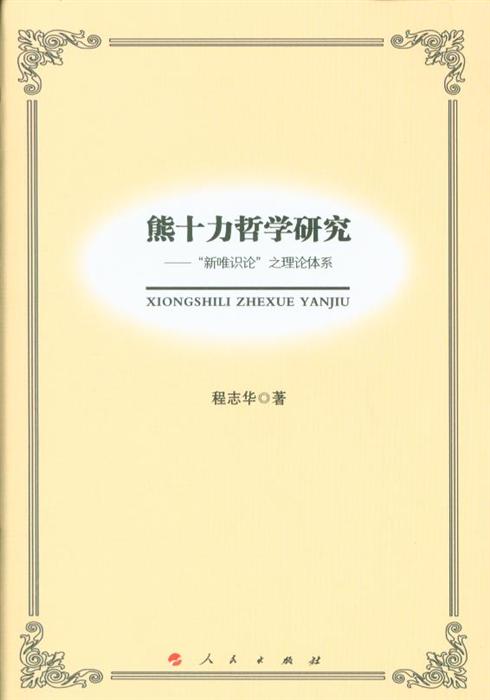Xiong Shili’s Philosophy:The Theoretical System of a New Treatise on Consciousness-only

Writer: Cheng Zhihua
Publisher: People’s Publishing House
In 1932, his A New Treatise on Consciousness-only, Xiong Shili presents a Confucian critique of Buddhism based on The Book of Changes. The content he references is at times quite obscure, making parts of the vast system he introduces inaccessible to the lay reader. Cheng Zhihua’s shift from the philosophy of Mou Zongsan (another 20th-century Confucian exponent) and recent publication of Xiong Shili’s Philosophy—The Theoretical System of a New Treatise on Consciousness-only therefore comes as a welcome guide to Xiong’s thought.
Historically, Chinese philosophers and historians of Chinese philosophy have typically had clear methods for discussing consciousness. Cheng Zhihua makes a distinction between external interpretation of a theory, which emphasizes the relationship between philosophy and the historical conditions from which it emerges, and internal interpretation, which isolates the objects from their historical background or social influences and places them wholly within their ideological framework. In the Xiong Shili’s Philosophy, Cheng compares these interpretive methods in great detail, stressing the importance of the latter method. According to his explanation, external changes in philosophical discourse really arise from internal causes.
Cheng concludes that from Xiong Shili’s perspective, philosophy has three characteristics. Firstly, philosophy is, at its core, ontology—ancient philosophy in particular is simply ontology and the study of forms. Secondly, philosophy presents a set of categories and a conceptual system, without which its articulators would be unable to formulate their ideas clearly and precisely. Thirdly, philosophy has a logical framework. This is a precondition for its communicability and forms the mode of expression by which philosophers elaborate their thought.
Cheng Zhihua is from the School of Chinese Classics at Wuhan University.
The Chinese version appeared in Chinese Social Sciences Today, No. 561, Feb. 19, 2014
Translated by Zhang Mengying
Revised by Charles Horne
